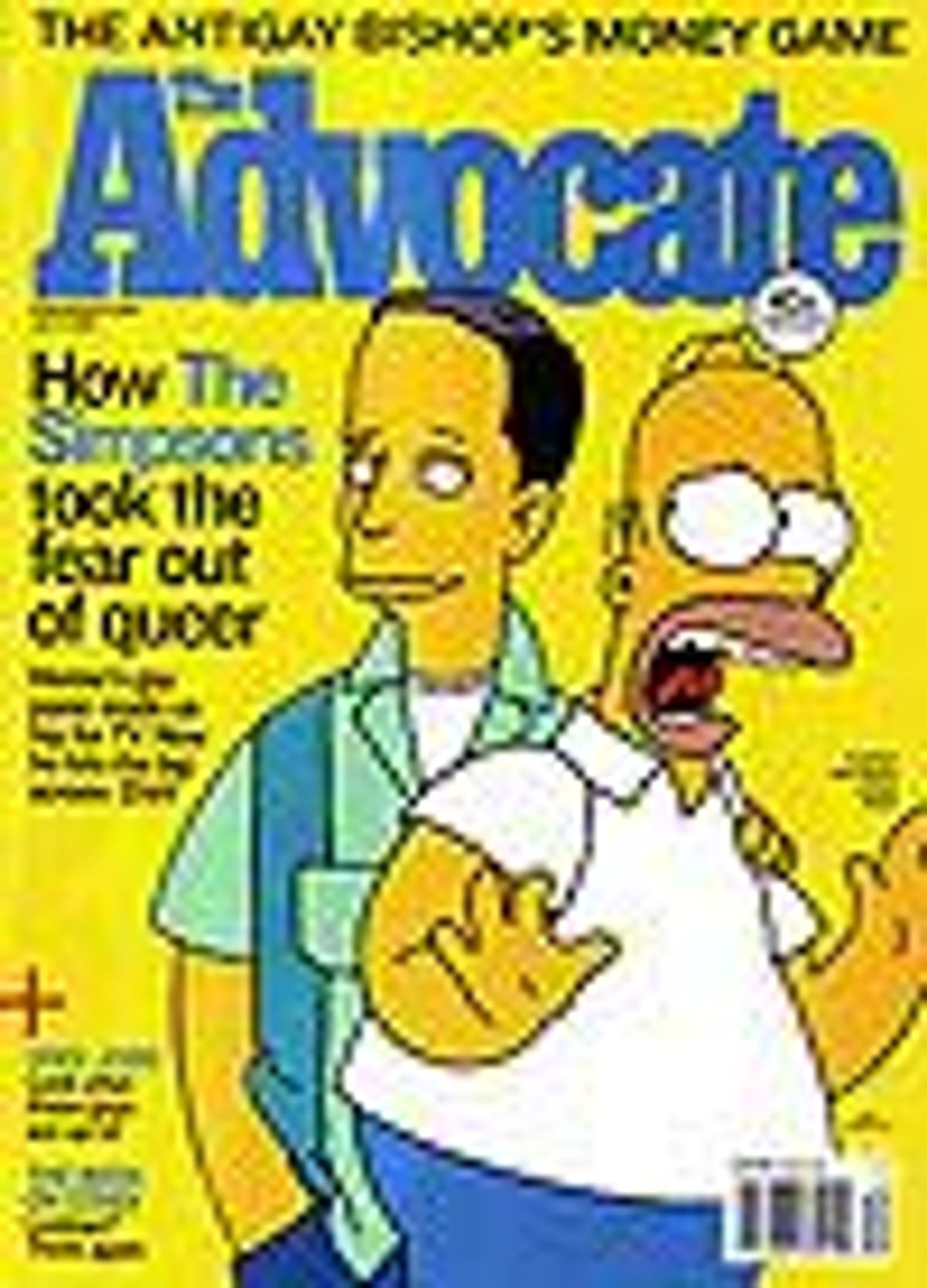I'm
listening to Matt Groening, creator of America's
best-known fictional family, tell me that he thinks
the Simpsons are probably Republicans, and I feel a
twinge of real-life distress. "They're pretty
politically apathetic," says Groening,
"but they do go to church and they do pray, and
I get the feeling that if they voted, they would probably
vote for the, uh...for the wrong
candidate." He pauses before reiterating, "If
they voted."
Everyone wants
the Simpsons to be on their side, because after 18 years
The Simpsons remains TV's most perceptive
reflection of the American psyche. Producer and writer
Al Jean says that many viewers think the Simpsons are
them--a rough depiction of their own families.
Groening likens watching The Simpsons to taking
a peek at what's going on "back
home," that place you fled years ago.
So hearing that
Marge and Homer probably vote Republican naturally
inspires dismay. It feels like a Gallup poll confirming the
country's drift into creepy conservativism. The
worldview of this cartoon family somehow seems like an
accurate barometer of America's disposition: As go
the Simpsons, so goes the nation.
Funny thing about
that is, when they first appeared on television 20
years ago, this yellow-skinned, mildly dysfunctional nuclear
family--seemingly lacking in luxury tastes or
ideology--probably leaned Democratic: somewhat
politically uninformed just like most of the
electorate, voting for Clinton because he seemed like a good
guy, more concerned about stability and budgets than
divisive social issues that didn't affect their
lives. Today, post-9/11, you can see Marge sitting
solidly in the "security mom" demo and
dim-witted Homer easily manipulated by the specter of
an illegal immigrant stealing his button-pushing job
at the power plant.
Of course,
there's a difference between the Simpsons, the
family, and The Simpsons, the program. The
program has always embraced nonconformity, from its
initial debut as a 30-second short on the iconoclastic
Tracey Ullman Show in 1987, and later, as a
half-hour animated sitcom on the fledgling Fox network
in '89. It's hard to recall now, but
social conservatives were initially enraged by The
Simpsons--in that comical, television-obsessed way
that conservatives were in the early '90s, when
they railed against Beavis and Butt-Head's poor
high-school attendance records and Murphy Brown's
fatherless baby. They felt that the show glamorized
family maladies, that Bart encouraged insubordinate
tendencies in children. Conservative school boards
nationwide banned the "Underachiever and proud of it, man!"
T-shirt. Former president George H.W. Bush explicitly
encouraged families to be more like the Waltons and
less like the Simpsons.
Despite the
outcry, most of the country was flocking to Springfield, and
the show's instant popularity shielded its creators
from feeling the political backlash. "I think
Barbara Bush spoke out during the show's fifth
season about [The Simpsons as] the idea of
what's wrong with society," remembers
founding producer James L. Brooks. "I so
didn't take it seriously that I was later on a
receiving line and she was there, and I made a joke
about it to her. She just looked at me stonily."
Unlike Barbara,
most viewers recognized that whether they liked it or
not, The Simpsons was telling the truth. Life
hadn't been like The Waltons for
decades, if ever. Middle-class kids were
underachieving. Their teachers were cynical and detached,
their parents lazy and prone to hysteria. And
Springfield itself, with its incongruous mix of
"undesirable" minorities, polluted waterways,
and soulless Kwik-E-Mart stores, looked like a real
modern-day suburb, an American dream in decline.



















































































Viral post saying Republicans 'have two daddies now' has MAGA hot and bothered